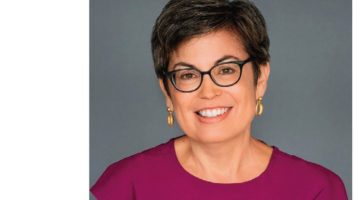The racist and homophobic regimen which the powers-that-be have been foisting on Floridians is becoming increasingly well known nationally, thanks to Gov. Ronald Dion DeSantis. What non-Floridians will be learning is that several aspects of this style of governance exist in many Republican-led states but the extent in Florida is uniquely damning.
One key law, FL HB 7 (22R), the Individual Freedom Act, remains blocked by the courts. Chief U.S. District Judge Mark Walker last November declared some provisions “positively dystopian” and violate constitutionally protected free speech and due-process rights. He issued an injunction blocking implementation.
The measure, passed last year, bars schools and companies from ascribing guilt or blame to college students and employees based on race or sex. Politico reported that it was Inspired by DeSantis and rejects labels such as “white privilege” and mandates that no one should be made to “feel guilt, anguish, or any other form of psychological distress” due to race, color, sex or national origin. Last Thursday, the 11th U.S. Circuit Court of Appeals upheld the judge’s ruling.
But the DeSantis administration is any how proceeding with its campaign against diversity, equity and inclusion (DEI) in state colleges against professors who teach them. But, in some other places, there is a different story, of students and educators collaborating in an intellectually friendly environment.
A March 15 report by The Miami Herald’s Sarah Blaskey and Nicholas Nehamas was headlined “DeSantis vs. diversity: Blacklists have universities playing defense as Republicans attack.” A March 6 story in The New Yorker by staff writer Nathan Heller
was headed “The End of the English Major.” On the surface there does not seem to be any connection between the two but there is.
The Herald reported, based on more than a dozen interviews, that, behind the scenes, “educators navigate an increasingly hostile work environment resulting from vague and ever-evolving directives coming from Tallahassee. Trainings and events have been preemptively canceled pending proposed legislation.”
Professors were compiling lists of their courses and turning over emails to the authorities, who then determine what should be scrubbed clean of DEI. Some were changing the way they teach. Others were recording their lectures “to defend themselves should someone take their comments out of context.” Some were considering leaving the state.
In January, state universities compiled lists of initiatives related to DEI and critical race theory (CRT), under a directive from the governor’s office, without guidelines on what constituted DEI or CRT. The result was “a grab bag of hundreds of student organizations, mentorship programs, community outreach initiatives, offices dedicated to federal compliance and a seemingly random assortment of classes — including ‘American History to 1877,’ ‘Topics in Buddhism,’ and ‘Classical Perspectives on Dance.’” University administrators drew up the lists “behind closed doors in consultation with the Florida Board of Governors as they scrambled to fulfill DeSantis’ information request in just two weeks over winter break,” The Herald said. At the University of West Florida, “staff searched the course catalog for the keywords ‘diversity, race, ethnicity, equity, inclusion/inclusive, cultural, gender, sex/sexuality, international, and poverty.’ Deans then went through the results of the initial search, adding and subtracting programs and classes based on their own judgment before sending the list up the chain to the Board of Governors.”
The names and contact information of hundreds of faculty and staff and even some students were “turned over to state Republican leaders in response to a second order from [Paul] Renner, the House speaker, seeking information on the activities of anyone involved with campus diversity initiatives.”
The Herald concluded, “The information-gathering efforts provide a blueprint for how a legislative agenda billed as a campaign against wasteful spending and liberal bias has ballooned into one that potentially targets any campus activity or course acknowledging diversity, race, or gender.”
A different sort of scenario is playing out, for example, at the private Harvard and the public Arizona State universities. There, the focus is on students’ concerns, including course selection and lively discussions with their professors. The takeoff point is an alarming decline of interest in the humanities.
Students focus on, for example, whether to sign up for humanities or opt for, say, STEM – Science, Technology, Engineering, Mathematics — courses or some combination of both. There is no pressure to drop or modify what DeSantis has dubbed “zombie courses.” An unidentified 2021 Harvard graduate told Heller that she regarded herself as an avid student of literature but never considered studying the subject in depth. It was her choice, based on her personal circumstances, to study molecular and cellular biology.
Heller shared a glimpse of what goes on when he visited assistant ASU professor Brandi Adams’ English 206: Introduction to Literary Studies class. “We read ‘Beowulf,.’ We read ‘Tears of the Trufflepig,’ by Fernando Flores,” she said. “We read ‘The Roman Actor,’ by Philip Massinger. We read sonnets by Shakespeare, Thomas Wyatt, Terrance Hayes, and Billy Collins. We read ‘Persuasion,’ we read ‘Passing,’ we read Victoria Chang’s banger poems, ‘Mr. Darcy’ and Edward Hopper’s ‘Office at Night,’ and we read ‘Uses of Literature’ by Rita Felski. We also watched the ‘Persuasion’ and ‘Passing’ Netflix adaptations. It has given me the opportunity to think about what we did and didn’t like. I think I might remove ‘Persuasion.’” Adams then asked her students, “What do you think? Keep it or ditch it?”
“I say ditch,” one student answered.
“Should I substitute another Jane Austen novel?” the professor asked.
“I liked ‘Pride and Prejudice,’” another student replied.
“So everyone’s just, like, You picked the wrong one?” Adams asked, shrugging. “‘Persuasion’ is gone.”
Adams’ approach, Heller said, reflected a wider effort at ASU “to meet students in their interests.” For example, explained Jeffrey Cohen, ASU dean of the humanities, “Instead of a teacher telling you why it might be relevant, but there doesn’t seem to be any connection to your lived experience, I think it’s important to have every model of learning available to every student.”
Added Heller, a Harvard graduate, “Everyone agrees that the long arc of higher education must bend toward openness and democratization. And universities, in an imperfect but forwardinching way, are achieving the dream.”
Not in Fla. and other Republican-controlled, where rightwing political correctness enforced by law has led to banning and censoring books. One publisher, Studies Weekly, produced two versions of a summary on Rosa Parks. One says, “Rosa Parks showed courage. One day, she rode the bus. She was told to move to a different seat because of the color of her skin. She did not. She did what she believed was right.” The other: “Rosa Parks showed courage. One day, she rode the bus. She was told to move to a different seat. She did not. She did what she believed was right.”
Someone should tell these people that historical race erasure is a form of genocide.













No Comment